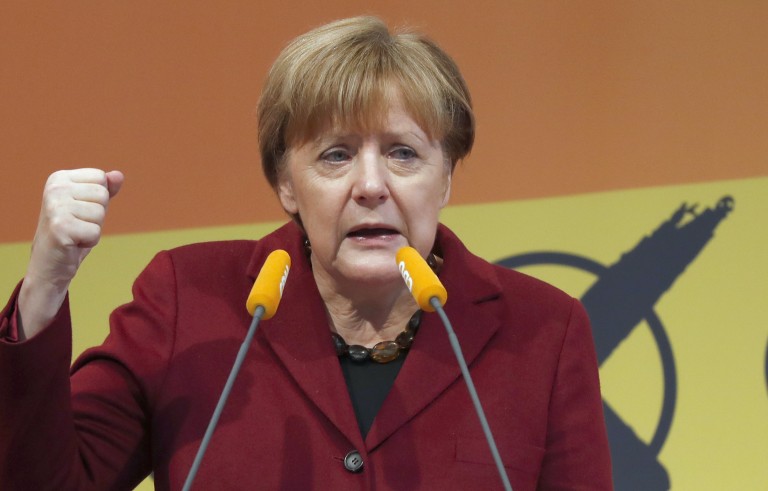ALISON STEWART: In Germany, millions of voters in three states went to the polls today, in what amounted to a referendum on Chancellor Angela Merkel's welcoming of more than a million refugees from the Middle East.
For Merkel, it was a disappointing setback. Exit polls show her Conservative Democrats will lose seats in the state legislatures, some to one anti-immigration party.
For more on this, I am joined from Cologne via Skype by Gabriel Borrud, a reporter for the German international broadcaster Deutsche Welle.
Gabriel, what do today's results mean for the German government?

GABRIEL BORRUD, Deutsche Welle: Well, at this point, it's more than fair to say that the clear losers on this Super Election Sunday, as it's being called, were Chancellor Angela Merkel and her Conservative CDU.
And the clear winner was the right-wing upstart alternative for Germany. Germany has 16 federal states. And every five years, these states, they elect a new government. And what happened — or the states that that happened in on this Sunday were Baden-Wurttemberg, Rhineland-Palatinate, and the eastern impoverished state of Saxony-Anhalt.
In each of these states, Merkel's CDU lost ground. And one particularly shocking example was in Baden-Wurttemberg, the home of Porsche, the home of Mercedes-Benz, one of the most prosperous regions and a bastion of conservatism here.
What it means on the federal level is that the Upper House of Parliament, which is tasked with passing laws, it's going to be harder for Merkel's CDU to pass laws. And there's a lot of important legislation that's going to have to go through that house next year.
So, this really is black Sunday for Merkel, as it's already been called by German media.
ALISON STEWART: Gabriel Borrud, reporting from Cologne, thank you so much.












